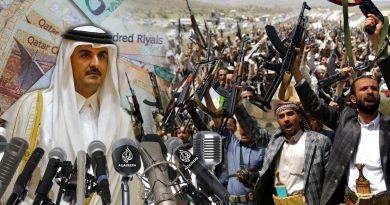ANALYSIS: Power struggle at the head of the ruling regime in Iran
by Cyrus Yaqubi
The order of decision-making institutions in Iran is not clear, and this has long led to a dispute over authority between leaders of the regime…
Since the Iranian revolution in 1979, understanding the structure of the ruling system in Iran and the decision-making mechanism, at times, has sometimes been challenging and difficult to understand and analyze.
Although the “Vali-Faghih or the Supreme Leader” is at the top of the system’s pyramid of power, the president holds the executive power. Still, the order of decision-making institutions in Iran is not clear, and this has long led to a dispute over authority between leaders of the regime who are at the center of its influence and controls its decisions.
On December 21, 2020, Hassan Rouhani, who will be in power for just a few more months, sharply criticized the regime’s institutions for interfering in the executive branch’s work and trying to limit its powers. Rouhani complained about the Guardian Council’s manner of the presidency, accusing it of using a different interpretation of the constitution to reduce the president’s powers.
“Some MPs say we should monitor the work of ministers, but this is an incomplete interpretation of the constitution,” he said. “Deputies have the right to question ministers and the government, but it is not the job of parliament to oversee the work of ministers. It is the job of the president,” he continued.
Rouhani’s remarks about his reforms and criticisms of government institutions reflect the drastic differences between the regime’s leaders to influence the decision-making mechanism, especially when viewed from the perspective of the post-Khamenei transition phase. This issue becomes more apparent in relation to the differing views between the two rival factions on negotiations with the United States.
Last week, after Ali Khamenei’s speech on the occasion of Qassem Soleimani’s anniversary, stating, “If we can lift the sanctions, we should not delay it even an hour,” each side interpreted his remarks according to its own interests. This led to a political confrontation between the conservative and reformist factions and turned into mutual criticism.
Pro-government media highlighted sections on “lifting sanctions” from Khamenei’s speech.
Senior Rouhani administration officials also accused their opponents of seeking to complicate the negotiation process with the United States and delay achieving positive results until after next year’s presidential election in Iran, according to Iranian Foreign Minister Javad Zarif.
In this regard, Javad Zarif stated that “some friends” are oriented towards the United States “that you can work better with us” and that the Rouhani government “does not stay in power” and should not be negotiated with this government.
The head of Iran’s Atomic Energy Organization, Ali Akbar Salehi, also attacked the parliament and the Guardian Council. He expressed surprise at the plan approved by lawmakers to increase Uranium enrichment, saying that Iran did not have the financial resources to install and operate 1,000 sixth-generation centrifuges. Deputies do not pay attention to it.
On December 14, 2020, Hassan Rouhani also stressed that he would not allow some individuals to “delay the end of sanctions.”
In his speech, Rouhani referred to Khamenei’s speech, who said that if you can lift the sanctions through negotiations, do not delay even for an hour. However, Khamenei said shortly afterward: “I agree with the government officials as long as they adhere to the goals of the people.” Lifting sanctions is in the hands of the enemy, but it is up to us to make the sanctions ineffective, and therefore we must focus more on making the sanctions ineffective than focusing on lifting them.”
In practice, however, Rouhani sought to use Khamenei’s words to regain the initiative in future negotiations with the United States and gain the upper hand over his opponents, which has expressed distrust of the United States opposed negotiations. It seems that he intends to decrease the power of his opponents by making changes in the constitution before the end of his presidency. For this purpose, one more time, he raised the issue of a referendum for changes in the constitution.
But the hardline faction, which in fact is affiliated with Khamenei’s, accused the reformist faction of distorting Khamenei’s remarks.
Vatan-e-Amruz, a government-critical media outlet, reacted to this report on Saturday (December 19), calling it a “mercenary of falsification.”
Mohsen Rezaei, secretary of the Expediency Discernment Council, also tweeted that a “coordinated and purposeful move” had been made to “distort” the Islamic Republic Supreme Leader’s views on “lifting sanctions.”
In short, this kind of reaction from the conservative faction of the Iranian regime leads to a decrease in the chances of Rouhani and the reformists to reach an acceptable agreement between Iran and the United States. At a time when Iran desperately needs the lifting of sanctions to rebuild its shattered economy and at a time when the Corona crisis has heightened popular discontent, this power struggle between the two ruling factions is in full swing as everyone awaits Khamenei’s death. Next year is going to be more intense than ever behind the scenes.
Cyrus Yaqubi is a Research Analyst and Iranian Foreign Affairs Commentator investigating the social issues and economy of the middle east countries in general and Iran in particular.



